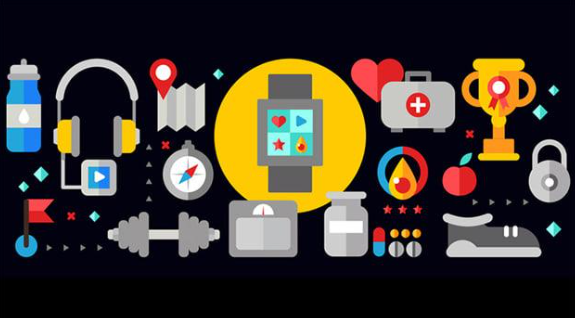Our lives are being transformed at a frenzied pace. Our habits are being reframed like never before. Humanity is progressing at a frenetic pace. But let us step outside the halo of self-assured smugness that this new course has constructed around us, and reflect for a moment. What is progress?
At a simple level of understanding, the Cambridge Dictionary defines “progress” as “movement to an improved or more developed state, or to a forward position”. In economic terms, it could mean economic growth; although most economists today would be reluctant to equate mere economic growth with progress – whether the fruits of that growth are being enjoyed by the entire populace is what would concern them more. But if one were to move away from these more general, and dare I say, material definitions of the term to a more human and individual, almost intimate, meaning, progress would be perhaps deciphered differently.
My own human and intimate definition of progress would be the process of enhancement of the ability of the body, and mind, to function at its most optimum level for as long as possible, without breaking a sweat. It could perhaps be better explained by invoking elements from a
couple of verses of the Bhagavad Gita. This first is “samatvaṁ yoga uchyate”, which essentially translates to “equanimity is Yoga”. Many scholars have interpreted this to also mean that “Yoga is the state of balance, or harmony”. The second verse talks about how “Yoga essentially means having dexterity in one’s actions” or “Yogah karmasu kaushalam”.
Illustration 1: Roger Federer in motion. It could be argued that Federer, in full song, was the living embodiment of both the state of harmony with oneself and having full dexterity in one’s actions. Image Source: Getty Images
Now, by marrying my definition of progress with these two elements of the definition of Yoga, one could reach the conclusion that, essentially, progress should mean that, on one hand, the process of enhancing the ability of the body to perform at its optimal level, with dexterity, is set rolling. However, it is equally important to ensure that this process of attaining skill or ease is not an endeavour which disrupts the state of harmony and balance within the human body. Thus, any process which causes imbalances or fluctuations in the state of harmony in our body should not be interpreted as progress; it is, in fact, the antithesis of progress. Such a process could potentially become a great hindrance in the pursuit of progress in one’s life.
It is in this context that I would like to place the rapid, truly mind blowing advancement in technology that we find ourselves engulfed with at the moment. It is absolutely beyond debate that the advancements in technology that have occurred over the past hundred years has made
human beings’ life more comfortable and productive than ever before. This degree of “ease of living” has definitely not been enjoyed by any generation in any period of human history before. We are more connected to fellow human beings on the planet than we have ever been. At first thought, these developments warrant nothing but a great celebration of what the human race has been able to conjure up to improve fellow human lives. However, a closer look at these developments, and their impact, could throw up details that may not be entirely pleasant to the investigator.
The current age is also an age where non-communicable diseases – which are classified as diseases that are not spread by infection or through contact with other people, but, in fact, through unhealthy behaviours – are rampant throughout the globe, particularly in the more developed parts of the world, which have embraced the advancements in technology in a much deeper sense than the developing or the underdeveloped world. It is no secret that these diseases, which include cancer, heart diseases, auto-immune disorder and diabetes, are more often than not
heavily dependent on one’s lifestyle choices for their occurrence, and later even their progression. So, what we see is that a steady advancement in technology, along with a steady advancement in its level of integration into our daily lives, is wreaking havoc in our body’s
systems, in more ways than one.
At a very basic, almost lay-person level of understanding, it is quite easy to point out why this could be happening – as technology, and its enabling of automation and digitisation, performs more and more of those tasks for us which were previously part of our everyday routines, it is quite natural for the components of the body that used to be involved in those activities to fall into disuse. Disuse, in turn, brings with it further complications, many of which begin to affect even other systems of the human body. Thus, in a chain-like reaction, non-activity in one part of the body leads to a systemic failure of sorts, which leads to the eventual onset of disease.
Another, more subtler way to comprehend this is through the help of the Yogic pancha kosha theory. According to this theory, the human body is made up of five koshas or sheaths of existence. They are Annamaya kosha (food/physical sheath), Pranamaya kosha (vital air/life
force sheath), Manomaya kosha (mental sheath), Vijnanamaya kosha (intellectual sheath), and Anandamaya kosha (bliss sheath) (Nagendra & Nagarathna, 2008). Now, in certain Karma Yoga traditions, it is believed that to ensure sound health of the Anandamaya kosha, it is essential to engage in actions or activities where one does for others, instead of just doing for oneself. This doing could involve helping someone in need, taking care of another person, or simply even helping keep your surroundings clean. The point is to do something for the society at large, instead of just for the sake of oneself. When one does not engage in such actions, the Anandamaya kosha does not function at its optimal level. And when the Anadamaya kosha is not functioning properly, its effects percolate down to all the grosser sheaths of our body, ultimately resulting in sickness or disease in the Annamaya kosha, which is our physical body. One could argue that technological advancements only enable us to serve society in an even better manner. While it could be true, what our experience shows us is that while organisations, or even governments, have incorporated technological developments into their programs for societal welfare, at an individual level, the quality of our interaction with society has only deteriorated. Technology has made us more impersonal, self-centered and individualistic than ever before.
It is not just the rise of non-communicable diseases that is a cause for concern in our times. The technical advancement has been proven to have adversely impacted the human psyche. The “digital age” we currently live in, made possible only through the technological advancements over the past century or so, is almost solely responsible for diminished attention spans, unpredictable emotional swings, increased isolation, and in some extreme cases, even radicalisation (Fabbo, 2023).
Illustration 2: The future course of technological advancement warrants an approach that marries both ease of living and human wellness
Image Source: People Matters
The purpose of this piece is not to belittle or malign the immense contributions that technological advancements have made to our lives. Neither is it an attempt to thwart the further development of technology, which, I believe, is inevitable. But, certainly, I will be glad if this serves as a wake up call for those crafting the next evolution of technology. Technology can certainly aid human progress, but in this quest for advancement, let us not lose sight of what this progress is, and who it is ultimately for.
References
1. https://dictionary.cambridge.org/dictionary/english/progress
2. https://www.ifrc.org/our-work/health-and-care/community-health/non-communicable-
diseases
3. Fabbo, I. (2023). The Digital Age is Making us Worse Humans. Sacred Heart University.
4. Nagendra, HR., & Nagarathna, R. (2008). Integrated Approach of Yoga Therapy for Positive Health. Swami Vivekananda Yoga Prakashana.





Recent Comments